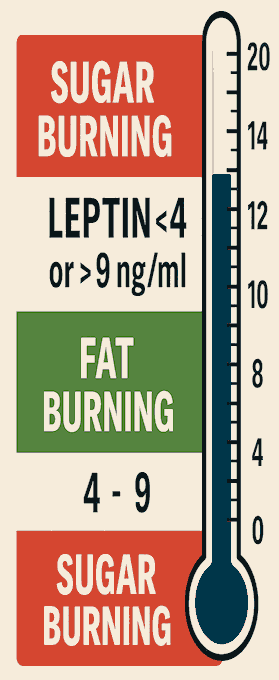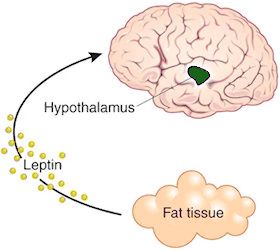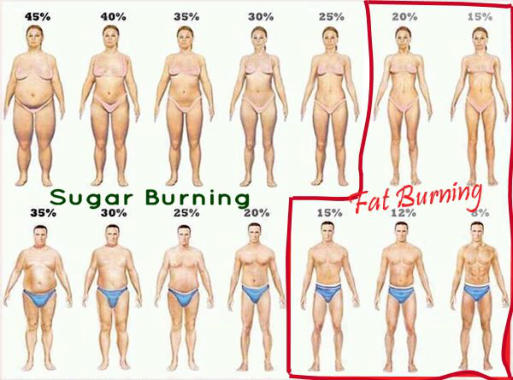- Improving lives since 2002
- Fast, Friendly Service
- Free Nutritional Counseling
The key to health is eliminating toxicities and deficiencies! - Dr. William R. Kellas
Your Body is Like a Car or Household Appliance
It Needs Maintenance


If you could only have one car or one particular household appliance to last your entire lifetime, what good maintenance practices would you establish to make it last your whole life? More importantly, with the one and only body you will ever have, what maintenance practices are you implementing so that your body will stay optimally healthy through a long life?
Eight Habits of Health
Before committing to anything — from a product, health strategy or anything in life —this simple filter brings clarity and balance to the decision.
If your mitochondria rely mostly on sugar for fuel, you may be accelerating your biological aging—silently trading away decades of energy, clarity, and resilience.
Because sugar-burning creates more oxidative stress, glycation, and elevated insulin signaling—all of which wear down your mitochondria.
Over time, this leads to chronic fatigue, hidden inflammation, and accelerated age-related decline—often years before it should begin.
It’s about fueling your body with cleaner energy, calming the nervous system, and unlocking your body’s potential for longer, stronger living.
Your mitochondria are the powerhouses of your cells, producing ATP — the energy that fuels every heartbeat, every movement, and every thought.
When your mitochondria are fat-adapted and resilient, you thrive. Energy becomes steady, inflammation stays low, and both aging and chronic disease slow dramatically.
Becoming a fat burner isn’t just a dietary shift — it’s a biological upgrade that extends your healthspan and restores your edge.
Fat fuels your mitochondria. Sugar burns them out.
Switching to fat for energy isn’t just about metabolism — it’s about shielding your cells, extending your healthspan, and protecting against chronic disease and premature aging.

It’s easy to grab the nearest green wood and light a fire. But that shortcut comes at a cost:

Taking a little extra time to gather dry, seasoned wood makes all the difference for a clean, strong campfire.
To truly maximize your healthspan and longevity, your body’s mitochondria must be trained to burn fat as the primary fuel—not sugar.
Sadly, most people unknowingly stay stuck in sugar-burning mode. This silent metabolic trap produces excess free radicals, accelerates cellular damage, and drives chronic disease and premature aging.
But once you shift to clean, fat-fueled energy, everything changes. Inflammation drops. Energy stabilizes. Regeneration begins. You unlock decades of vitality, clarity, and resilience that sugar-burning bodies will never reach.

To restore fat metabolism, you must:
The major cause of having a sugar burning metabolism (that creates excessive amounts of damaging free radicals and other life-shortening problems) is having broken Leptin receptors in the Hypothalamus:

Leptin is a chemical messenger that is made in fat cells. It circulates in the blood. Receptors in the Hypothalamus sense Leptin as blood moves past the Hypothalamus. How much Leptin is sensed by the Hypothalamus is the primary driver for whether our bodies burn fat or sugar. How this works is described below.
Leptin sensory receptors in the Hypothalamus drive a metabolic mode "switch" — like an "on" or "off" switch. This switch can be in one of two positions: fat burning or sugar burning
If the Leptin receptors detect sufficient Leptin, the hypothalamus activates fat-burning mode. However, if Leptin is not perceived as abundant, the switch shifts to sugar-burning mode. This triggers higher insulin levels, instructing the body to burn sugar while storing fat.
How the Hypothalamic Leptin Switch Breaks —The Leptin switch can "break" due to prolonged exposure to excess body fat and chronically high Leptin levels.
🔹 How This Happens:
This is similar to how strong smells fade over time—our olfactory sensors become desensitized to continuous exposure. Likewise, if Leptin levels remain elevated for too long, the hypothalamus stops detecting it.
Once the hypothalamus no longer responds to Leptin, it incorrectly assumes Leptin levels are zero, even when they are actually high. This leads to disastrous metabolic consequences:
1️⃣ The body gets stuck in sugar-burning mode.
2️⃣ Fat storage continues despite already high fat reserves.
3️⃣ Excessive sugar-burning accelerates aging and disease.
4️⃣ Insulin resistance develops.
Once the Leptin switch is broken, escaping sugar-burning mode becomes increasingly difficult. The body remains locked in fat storage mode, continuously accumulating fat while struggling with rising free radical damage, inflammation, and insulin resistance.
To prevent or reverse this cycle, it’s essential to:
By understanding and addressing Leptin resistance, one can unlock fat-burning mode, enhance longevity, and prevent metabolic disease.
The human body evolved to carefully regulate Leptin levels, as they serve as a key indicator of stored energy reserves. Maintaining sufficient energy stores was critical for survival, making continuous Leptin monitoring essential.
When Leptin levels are within an optimal range, the hypothalamus remains stable, sensing no threat of famine. As a result, it signals the body to burn fat for energy.
However, if Leptin levels move outside this range, the hypothalamus perceives an energy crisis, panicking and switching metabolism to sugar-burning mode to conserve fat stores.
But what exactly is this optimal Leptin range, and how can we maintain it?

A serum Leptin level above 9.0 ng/ml (the top red zone of the Leptin Meter) indicates a Leptin-insensitive hypothalamus—a condition that disrupts the body's metabolic regulation.
A serum Leptin level between 4.0 ng/ml and 9.0 ng/ml (the green middle zone of the Leptin Meter) signals "no famine mode"—a state where the body is in optimal fat-burning mode, producing high energy with minimal free radicals.
This is the optimal metabolic state, where energy is abundant, fat is efficiently burned, and cellular aging is slowed.
A serum Leptin level below 4.0 ng/ml (the bottom red zone of the Leptin Meter) signals the body to enter famine or illness mode.
📌 In the case of real famine or illness, this is a life-saving adaptation. However, in modern conditions, it can work against long-term metabolic health.
Salient Fact to Take Away
When the Hypothalamus cannot sense an adequate amount of Leptin in the bloodstream, either because there really isn't very much Leptin or because its Leptin receptors have become desensitized by the presence of too much Leptin, the Hypothalamus panics and commands the body to try to burn sugar and store fat. While burning sugar, one is growing old and diseased twice as fast because twice as many free radicals are being generated compared to if one's cells were burning fat.
Getting and keeping Leptin levels in normal range is our number one Habit of Health.
You can get a blood test for Leptin (from your Doctor) in order to know where you are currently in terms of Leptin level.
Or, since Leptin is made in body fat which means the more body fat you have the more Leptin your body makes, you can estimate your Leptin level by simply looking at the fat percentage chart to see where your body fat most likely is, and if your Leptin level is in the the fat burning mode or not. Please note that women make about 15 percent more Leptin in their fat cells than do men, since women's hormonal processes are different. This means that women's fat burning responses are different, take longer, and must be sustained longer.
Once you get your Leptin blood test results (or make an estimate based on body fat percentage), you will know where you are at. You can then choose to adjust your life-style and/or diet to get your Leptin level into the fat burning range.
Remember Leptin is made in fat cells and that means that a main driver of Leptin level is the amount of body fat one has. So, scientifically speaking, in order to stay in the fat burning mode and live the healthiest and longest life possible, it will be essential to get and keep your body fat percentage in an optimal range.

If your body fat percentage is not in the optimal range for fat burning, then you need to learn and carry out the tactics for temporarily normalizing Leptin levels while you make permanent changes that will allow you keep your Leptin level in the fat burning range permanently, for the rest of your life.
As described in the previous section, you know you are in a sugar burning Leptin range if...
If you're in a sugar burning Leptin range, then you also know that your body's cells are being damaged faster than they should be (because your cells will be generating twice as many free radicals as they could and should).
If nothing changes your metabolic mode back to fat burning, the unhappy reality is that cellular damage will occur much faster than might have been. Consequently, you will experience disease and death much sooner than could have been.
That should be an incentive to take action. But, unless you know what to do, it is very unlikely that you will be to get your body back into the fat burning mode. So, learn the fat burning tactics described on this page.
But, this is only possible if if you take decisive, correct action to change your metabolic mode permanently back to fat burning. That's what you now need to learn.
Using those five facts or tactics for overriding damaged Leptin receptors in the Hypothalamus, you can get your body back into fat burning.
We will teach you how to get your Hypothalamus and the cells of your body back to a fat burning mode and how to burn through excessive fat stores until you have the right amount of fat on your body to permanently maintain the fat burning metabolic mode.
# 1: The amount of sugar in the blood stream significantly changes the rate of Leptin production of Leptin in fat cells.
Getting more precise:
To keep blood sugar low, we recommend eating low glycemic foods and eating nutrient-dense food and/or exercising in the evening to remove sugar from the bloodstream.
# 2: Leptin can be cleared from the bloodstream each night so that one starts the day with low Leptin levels. What helps Leptin to clear includes:
Getting more precise:
If you understood the above, then you will realize that the quintessential secret for lowering Leptin production temporarily (so that you can get Leptin level low enough to get back into a fat burning metabolic mode) is to keep your blood sugar low. Tactics for keeping blood sugar low, then, are what you want to learn!
Significant, prolonged exercise forces fat burning to occur.
This happens because the cells that are being told to burn sugar, but can't find enough sugar in the blood to burn, so the cells decide to burn fat despite the signal to only burn sugar. They, essentially, have no other choice because of the energy requirement that the exercise creates.
Stress hormones (adrenaline, cortisol) force sugar burning to occur.
🔍 A few other metabolic influencers include:
Pregnancy hormones override leptin regulation and force fat-burning mode.
Women naturally produce less leptin per pound of fat than men.
If you’ve realized you’re in sugar-burning mode, you can switch back to fat-burning by following these steps:
Reserve sweets for real celebrations: Frequent sugar spikes damage leptin receptors. When those receptors aren't working, fat stays locked in and sugar-burning dominates — setting the stage for chronic disease.
So, keep your sweets to only twice a week, maximum.

Ron Rosedale is an Internationally known expert in nutritional and metabolic medicine whose work with diabetics is truly groundbreaking. Very few physicians have had such consistent success in helping diabetics to eliminate or reduce their need for insulin and to reduce heart disease without drugs or surgery.
Dr. Rosedale was founder of the Rosedale Center, co-founder of the Colorado Center for Metabolic Medicine (Boulder, CO USA) and founder of the Carolina Center of Metabolic Medicine (Asheville, NC). Through these centers, he has helped thousands suffering from so-called incurable diseases to regain their health.
One of Dr. Rosedale's life goals is to wipe out type II diabetes in this country as a model for the world. He also has written a book,"The Rosedale Diet", covering his proven treatment methods for diabetes, cardiovascular disease, arthritis, osteoporosis and other chronic diseases of aging.
being in the sugar burning mode is stressful to the brain. When the Hypothalamus can't detect Leptin it will believe a famine or illness is occurring, and it will feel panicked or stressed and unable to relax. Since the Hypothalamus is at the center of our survival, reward and motivational behaviors, when the Hypothalamus is stressed from not being able to detect Leptin, it is quick to rewire the brain to look for food or “other sources of comfort”. So, anyone who is trying to overcome harmful addictive behaviors, should seek to get Leptin levels into a normal range, almost as a first priority.Clear Thinking as proposed by several Harvard scienistists requires asking and answering three questions:
What is going to result has to be understood? And, particularly, the downsides must be understood?
Copyright 2002 - 2024. All rights reserved.
These statements have not been evaluated by the Food and Drug Administration. No product mentioned herein is intended to diagnose, treat, cure or prevent any disease. If you are pregnant, nursing, taking medication, or have a medical condition, consult your physician before making any lifestyle change, including trying a new product or food.
The information on this website is intended as a sharing of knowledge and information from the research and experience of the Healthy-Living.Org staff and contributors. It is not intended to replace a one-on-one relationship with a qualified health care professional and it is not intended as medical advice. You should not use the information on this site for diagnosis or treatment of any health problem or for modification of any medication regimen. You should consult with a healthcare professional before starting any diet, exercise or supplementation program, before starting or discontinuing any medication, or if you suspect you have a health problem. You should keep in mind that cited references to ongoing nutritional scientific study are most likely not accepted by the FDA as conclusive. These references and mentions of benefits experienced by others are disavowed as product claims and are only included for educational value and as starting points for your own research. No food or supplement can be considered safe for all individuals. What may benefit 999,999 of a million people may harm you. Therefore, no one can take responsibility for your health except you in concert with your trusted health professional.